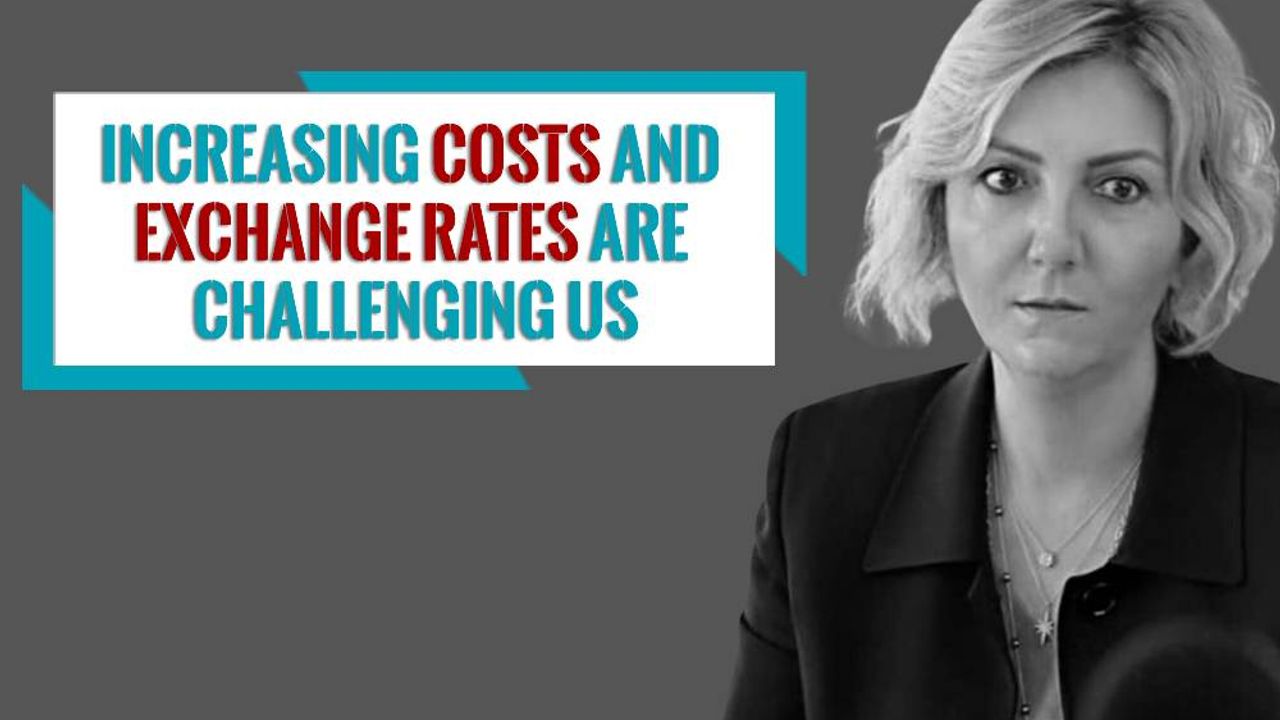President of Hotel Association of Türkiye (TÜROB), Müberra Eresin, reported that on an annual basis, hotel occupancy rates in Istanbul were 5% higher than last year, but revenues in euros saw a 15% decrease. Eresin stated, "Business is certainly not at the level we anticipated. (...) However, we do not agree with the notion that we are in a downturn. As major investors in tourism, rising costs and exchange rates are challenging us.”
Eresin assessed the hotel occupancy performance for the first eight months of 2024, covering the January-August period. She revealed that hotel occupancy rates across Türkiye stood at 61%, while in Istanbul, the figure was 64%. In the January-August 2023 period, hotel occupancy rates were 58% across Türkiye and 64% in Istanbul.
Significant decline in prices
Evaluating the first eight months of the year for the accommodation industry, Eresin said, "There is no visible problem in the influx of foreign visitors to Türkiye, and in fact, there is an increase. However, hotel occupancy and prices, particularly during the high season in summer, have seen a decline. On an annual basis, our occupancy rates for the first eight months are 5% above 2023 levels. In Istanbul, we are at the same level as last year. Business is certainly not at the expected level, and our prices have dropped by around 15% in euro terms. Nevertheless, we do not agree with the perception that we are in a downturn."
Discussing the various reasons behind the decline during the high season, Eresin added, "It is difficult to talk about tourism activity in an environment where wars are being discussed. We hope that the conflicts between Ukraine-Russia and Israel-Palestine will end soon and with peace. The end of wars around the world will positively impact tourism activities and our occupancy rates. Therefore, our greatest expectation is the establishment of peace worldwide. Additionally, we know that due to the UEFA European Football Championship and the Paris Olympic Games, there has been a slowdown in reservation flows globally, not just in Turkey. Naturally, these factors negatively affected us, just as they did the rest of the world during the summer season."
Hoteliers as the strongest investors in tourism
Eresin highlighted the ongoing investments in the accommodation industry, stating, "As the accommodation industry, we represent the most crucial investment arm of the tourism industry. Investments did not cease even during the pandemic. Both domestic and foreign investors believe in the tourism potential of the country. Continuously pessimistic rhetoric demoralizes the sector and gives an advantage to our foreign competitors, which we do not find appropriate. Turkish tourism has overcome many challenges over the years. While challenges should not be swept under the rug, we believe that presenting temporary difficulties as permanent issues and adopting overly pessimistic approaches harms the sector both domestically and internationally. We also consider the rumors that many hotels are declaring bankruptcy to be speculative and unfounded, as we have not received any verified information on this matter"
Rising costs and exchange rates pose challenges to industry
"As service exporters, we earn in foreign currencies, and the long-standing stability of exchange rates, coupled with rising costs in Turkish Lira, presents a significant problem," Eresin explained. "Unfortunately, while hotel costs are rising, revenues are not, and due to pre-signed contracts, we continue to use old prices. I have explained the reasons behind the declining room rates, but it is clear that even if prices had not fallen, the foreign currency prices offered today would be the same as last year's figures in Turkish Lira."






